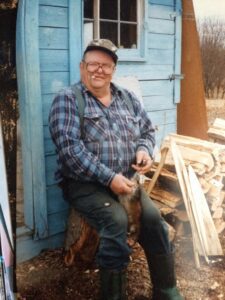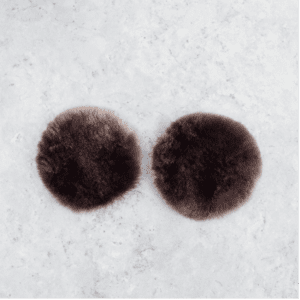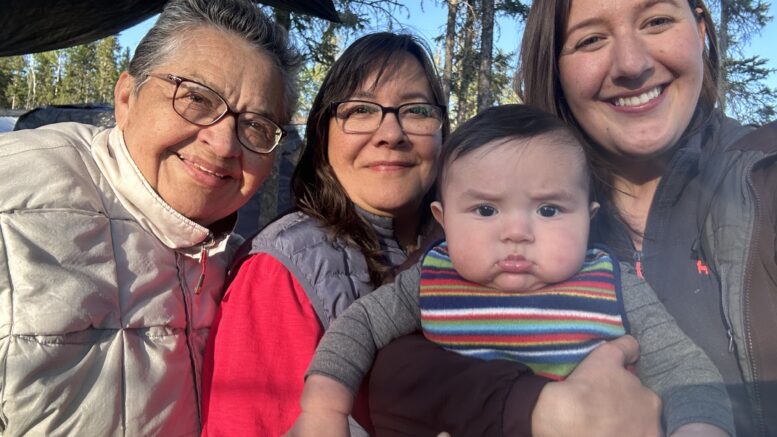
David Dragon, Brenda’s father, is skinning a muskrat in Salt River First Nation, Fort Smith. (Photo courtesy of Brenda Dragon)
Brenda Dragon can still remember those peaceful evenings when her father returned home from the bush and worked on furs under dim yellow lights.
“When my father passed away in 2012, I was thinking a lot about his life,” says Dragon of Dënesųłiné and French-Canadian heritage. “He was a trapper, it means a lot to our family, so I really wanted to do something with furs.”
Dragon took her family’s trapping heritage one step further in 2015. She started Aurora Heat, a wild fur products company that offers warmers in a variety of shapes for hands, feet, ankles and even breasts, all made from beaver furs.
Dragon’s business has gained recognition nationwide and even in the U.S. In June, she was named the Entrepreneur of the Month by the Native Women’s Association of Canada.
“Being in business is a lot of work, and it’s good work,” says Dragon, “I have found it very interesting, and I am always happy and excited to do the work of Aurora Heat. I just really enjoy making a difference.”
Driven by her creative mind, Dragon designs all the products by herself, including a breast and head warmer inspired by one of her friends who had breast cancer.
“She told me not only was she experiencing cold with her implants, she also was really cold through her chemo round. So I offered her body warmers and the head warmer when she was bald,” Dragon recalls.
“That’s a very common experience for not only people with breast cancer, but any kind of breast surgery,” she says, “so I came up with the idea of the breast warmer and they have been so successful. I’m finding people without any kind of program wearing them for the extra warmth and the coverage.”

Placed inside a bra, these soft breast warmers offer extra warmth and comfort for women who had surgery. (Photo of Aurora Heat)
“These warmers are not just cultural products,” Dragon says, thinking back to when wearing furs was popular among people in her town. “Fur is something that Northerners and Canadians have relied on as the first material, and it has kept us warm from time immemorial.”
“Bringing it back for use has been really satisfying to me,” she adds.
In a world filled with short-lived and disposable products, Dragon sees potential in Indigenous businesses like hers that are sustainable and easy on the environment.
“I’m very encouraged by Indigenous businesses,” says Dragon, “I’ve noticed that a lot of Indigenous people who are in business are trying to do things in a way that is not only good for the earth but good for the people here and many generations forward.”
Dragon encourages the use of traditional harvesting and trapping methods to get natural materials to maintain a healthy ecosystem.
“In Indigenous worldview, we’re part of the circle of life,” she says. “After the fur is taken and the carcass is brought back to the land, it’s eaten by all the little animals in the forest. In that way, trappers are helpful to that circle of life in the forest.”
Looking ahead, Dragon is planning to offer a tourism experience centred around wild fur, providing an opportunity for people to learn about trapping as an important part of Indigenous living experiences.
“If people loved what I’m doing and are in any way motivated, or they see it as something that they might be able to do, I’m very honoured by that,” Dragon says.





